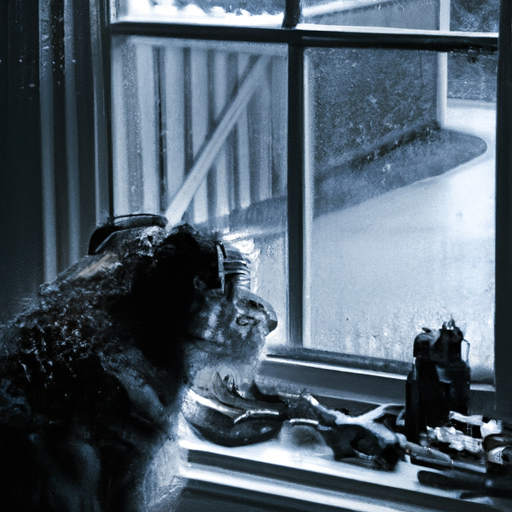As a caregiver, your role extends not only to human beings but to our beloved furry companions as well. You might have wondered, “Do dogs get depressed when their owner is away?” The simple answer is, yes, they can. Let’s delve deeper into this topic and help you understand your pet’s emotional needs better.
Understanding Canine Depression
Depression in dogs is not very different from depression in humans. When dogs are depressed, they show signs of being low-spirited, inactive, and detached.
- Changes in behavior: Dogs tend to exhibit drastic changes in their behavior when they are depressed. They may lose interest in activities they once enjoyed, such as playing fetch or going for walks.
- Loss of appetite: Depressed dogs often eat less and, as a result, lose weight.
- Changes in sleep patterns: Dogs suffering from depression tend to sleep more during the day and stay awake at night.
Research suggests that dogs can feel a range of emotions, and loneliness is one of them. When their owners are away, dogs can feel abandoned, which can lead to depression.
The Impact of an Owner’s Absence
Dogs are social animals and naturally attach to their owners. They see their owners as members of their pack and when you’re away, they may feel lost and confused. Here’s how your absence might impact your dog:
- Separation anxiety: This is the most common reason for depression in dogs. It occurs when dogs are excessively attached to their owners and can’t handle their absence.
- Changes in environment: Dogs are creatures of habit. A sudden change in their environment, such as moving to a new house or losing a family member, can trigger depression.
- Lack of social interaction: If your dog is used to interacting with you or other family members regularly and this suddenly stops, they might feel isolated, leading to depression.
Recognizing Depression in Dogs
Recognizing depression in dogs can be challenging. They can’t tell us how they’re feeling, so it’s up to you, as a caregiver, to look out for signs of depression. Here are some symptoms you should look out for:
- Loss of interest in activities
- Changes in sleeping and eating habits
- Constant paw licking or chewing
- Avoidance and hiding
How to Help a Depressed Dog
As a caregiver, knowing how to help your depressed dog is crucial. Here are some steps you can take to help your furry friend:
- Maintain routine: Dogs thrive on routine. Try to feed and walk them at the same time every day. This can provide a sense of security and comfort.
- Provide companionship: If you’re away often, consider getting another pet for companionship.
- Physical activity: Regular physical activity can boost your dog’s mood. Engage them in fun activities and games.
- Consult a vet: If your dog’s depression persists, it’s best to consult a vet. They may prescribe medication or recommend a pet behaviorist.
FAQ
Q: Can dogs feel their owners’ emotions?
A: Yes, dogs are quite intuitive and can pick up on their owners’ emotions. If you’re stressed or upset, your dog might feel it too and act differently.
Q: How long does dog depression last?
A: Dog depression can last from a few days to a few months. It ultimately depends on the dog and the reason for the depression.
Q: Can dogs suffer from long-term depression?
A: Yes, if left untreated, dogs can suffer from long-term depression which can negatively affect their health.
Q: Are some dog breeds more prone to depression?
A: Depressed behavior can occur in any breed, but dogs with high energy levels and intelligence are often more prone to depression when not stimulated physically and mentally.
Q: How can I prevent my dog from getting depressed?
A: Regular physical activity, a consistent routine, social interaction, and plenty of love and attention can help prevent depression in dogs. If you’re away often, consider a pet sitter or doggy daycare.
As caregivers, it’s our responsibility to ensure our pets are happy and healthy. Understanding their emotions and providing them with love, care, and attention can go a long way in preventing and treating depression in dogs. Remember, when in doubt, always consult a vet.



